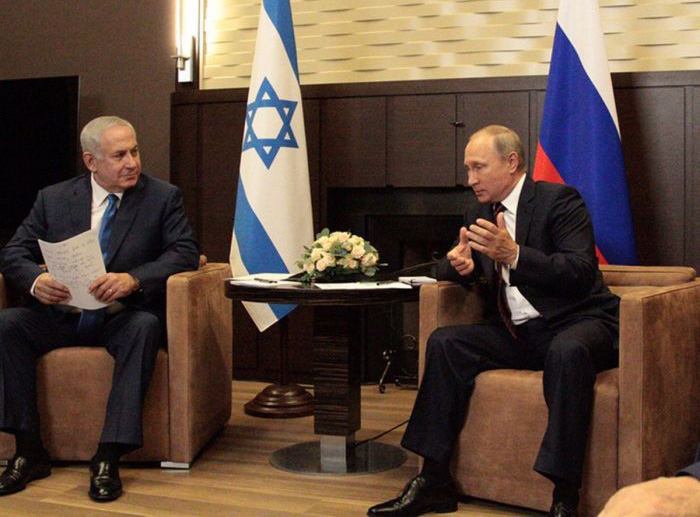Australia/Israel Review
IDF signals its red lines in Syria
Oct 11, 2017 | Yaakov Amidror

Yaakov Amidror
The attack on the Syrian weapons research and production plant in Hama province in the early hours of September 7 was carried out by the Israeli Air Force, or so foreign media claims. If this is true, it marks a certain shift in Israel’s policy.
If up to this point Israeli policy focused on halting Iranian and Syrian weapons shipments to Hezbollah, it seems that now – if the strike was, indeed, Israel’s work – other Syrian weapons production sites may find themselves in the crosshairs. It is impossible to know what prompted this policy change, but according to foreign sources, decision-makers apparently understood that if Israel does not act now, Hezbollah and other terrorist groups may get their hands on advanced weapons systems that would drastically improve their capabilities and threaten Israel.
Since the civil war erupted in Syria in March 2011, Israel has been waging a two-pronged campaign, seeking to deny Hezbollah the ability to take advantage of the chaos in Syria to obtain advanced weapons systems, as well as to prevent Iran from entrenching itself militarily in Syria. The realisation of either of these scenarios would make it easier for the Shi’ite terrorist group and its patrons in Teheran to act against Israel in the future.
It is very important that this message is understood across the border by the four main players in Syria, first and foremost Russia. This is the reason Prime Minister Binyamin Netanyahu’s conversations with Russian President Vladimir Putin last month were so important.
Thanks to years of diplomacy between Moscow and Jerusalem, constant dialogue has been maintained to prevent a situation where the Kremlin is surprised by an Israeli move. Israel truly values this relationship and acts to safeguard it, both in cases where Russia does not approve of Israeli moves and where Israel does not approve of Russia’s actions and arms deals.
The other players who stand out in Syria are Iran, Hezbollah and the Shi’ite mercenaries brought to the region by Iran. They work in tandem. The world was alarmed by the number of foreigners who flocked to fight among the ranks of Islamic State, but the truth is the Iranians brought more foreigners from around the Shi’ite world to fight by Hezbollah’s side for Syrian President Bashar Assad – and the world remains silent.
This is why the strike attributed to Israel was significant: It states, very clearly, that no place in Syria is safe, and if the activity in a certain site poses a threat to Israel, the decision on whether to target it can be made fairly easily.
There is no doubt that this sole bombing will not halt Iran’s efforts to tighten its grip on Syria, but it makes it clear that Israel enjoys freedom of action in striking a variety of targets, including Syrian ones.
Until now, Assad has allowed Iran and Hezbollah do what they want in Syria, as if it belonged to them. If foreign media reports are correct, by directly targeting a Syrian military facility, Israel sought to send a clear message to Assad that he must be careful and take into account that if he continues his hermetic coordination with Iran and Hezbollah, Syria and his regime will pay the price.
Israel has gone to great lengths not to get involved in Syria’s civil war, but if it turns out that Israel must strike Syria to protect its own interests, chances are that it will.
It is impossible to know how Assad may respond to this incident, but it is safe to assume both Hezbollah and Iran would tread lightly. Assad, who serves multiple masters, must understand that any aggressive initiative will be met by a forceful Israeli response.
Still, if we have learned anything, it is that one cannot bet on the other side’s logic. Israel must be prepared for any scenario.
Maj. Gen. (ret.) Yaakov Amidror is the Greg and Anne Rosshandler Senior Fellow at the Begin-Sadat Centre for Strategic Studies, and former National Security Advisor to the Prime Minister of Israel. He served 36 years in senior IDF posts, including commander of the Military Colleges and director of the Intelligence Analysis Division in Military Intelligence. © Israel Hayom (www.israelhayom.com), reprinted by permission, all rights reserved.
Tags: Israel






